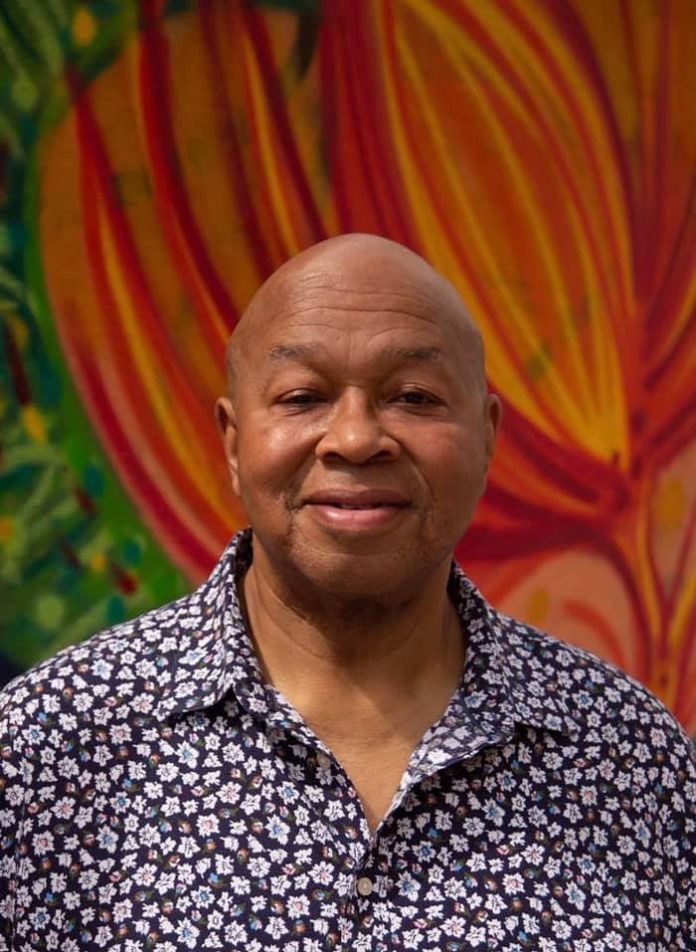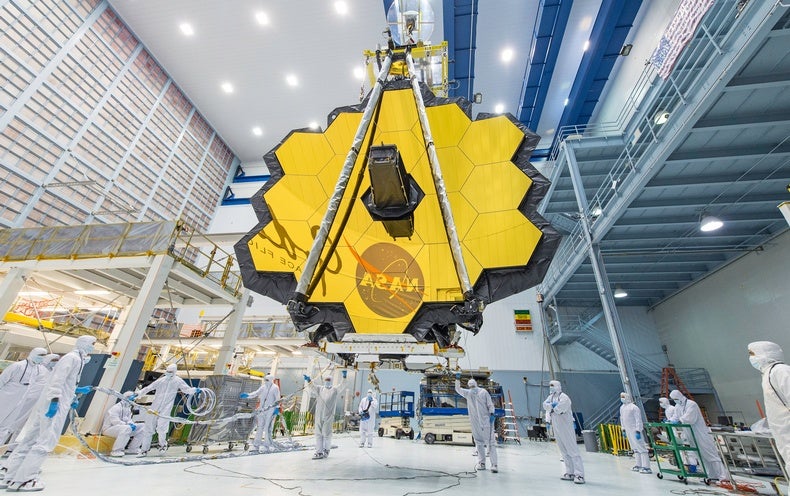
Wakefield. Photo by Michael McFadden Photography
For Seattleites who’ve seen the recent documentary about Dr. Anthony Fauci, simply titled Fauci, there’s a familiar local face that pops up.
Wakefield, who goes by the singular name, is a humble yet no less impactful force for good who worked for 20 years as the external relations director for Seattle’s Fred Hutchinson Cancer Research Center, specifically its HIV Vaccine Trials Network (HVTN). The center says his work was part of “the world’s largest publicly funded international collaboration conducting clinical trials of HIV vaccines.” Last summer, Wakefield retired from the work, leaving behind a long legacy that he hopes to pass on to the next generation.
That legacy includes being an activist for more than 60 years. In a tribute written in Seattle Gay Scene last year, the blog hailed Wakefield for “volunteering for non-profits in his native Chicago since he was a child and becoming a community leader during the onset of the AIDS Epidemic.” In 1994, the Chicago LGBT Hall of Fame inducted Wakefield for his decades of service to his community.
In those many years of service, Wakefield became involved with Fauci’s work in trying to combat AIDS. Fauci and other medical officials at the National Institutes of Health (NIH) faced prolonged pressure from groups like the AIDS Coalition to Unleash Power, known as ACT UP, over the failures to address the crisis that was killing in horrifying numbers. Sound familiar? For many, it echoed the White House’s early failures to respond to the current pandemic we are still facing.
For Wakefield, he saw the results of activists’ pressure begin to pay off. Fauci displayed a willingness to listen and change, while others in positions of power ignored the cries of those most affected. The work continued when Wakefield moved to Seattle in 2000, where he joined the efforts at the HVTN to find a vaccine for HIV. Since then, Wakefield has periodically seen Fauci in his travels, and Fauci‘s filmmakers approached him about being in the documentary last year.
Earlier this week, I had a conversation with Wakefield about the current work being done to address HIV in Seattle, the connections it shares with our past, and how activists pushed Fauci to let them come to the table.

From L to R, Dr. Anthony Fauci, Fomer External Relations Director at Fred Hutchinson Wakefield, and Senior Community Engagement Project Manager at Fred Hutchinson Gail Broder. Courtesy of Wakefield
We lightly edited this interview for length and clarity.
HUTCHINSON: For those who aren’t familiar, what was some of the work that Fred Hutchinson does that you were a part of?
WAKEFIELD: I was primarily involved in the search for an HIV vaccine. In the midst of all that, we had to pivot and do work on a SARS vaccine. For the HIV vaccine, we do the work in communities where people have access to HIV treatment and HIV prevention. For the HIV-positive people, whether they are in rural Thailand, rural Brazil, or rural Peru, we established a fund to ensure that they would have access to treatments in their communities. Our goal is to find solutions. The most important piece of our work was ensuring the places we did research had access to HIV treatments and protections. Our goal was to do ethical research, and that meant ensuring globally that people, wherever we were, had the same access to resources in Seattle that people had.
I wanted to ask about that vaccine process, a challenging undertaking with many setbacks. What do you see as the future of that work in looking for an effective HIV vaccine?
I think the mRNA vaccine is novel and will give us new inroads into HIV. The big difference is that there are people who have naturally cleared COVID, so we know what kind of antibodies protect against COVID. There are no human beings who have naturally cleared HIV, so we don’t have a human model to work off of to have an HIV vaccine.
Regarding this new documentary and how it captures the early origins of that work, how many times have you seen it?
I’ve seen it recently for the third time and it was my third time crying when I watched it.
So it had quite an impact on you?
It did. There was the impact of the storytelling that they do about Dr. Fauci, but the HIV/AIDS pandemic had such an impact that I changed my life. I married my vocation and avocation. That’s how I ended up in Seattle.

Wakefield. Photo by Robert Hood, Fred Hutch News Service
How did you first get involved in the documentary? What drew you to it?
It’s too bad you can’t see my face; this would be a fun in-person interview. I wasn’t drawn so much to participating as I was volunteered. The filmmakers asked Dr. Fauci about community voices and activists that he listened to, Peter Staley and others. I got this call from Janet Tobias, one of the filmmakers, and she said, ‘We’re doing a film about Dr. Fauci and wondered if we could interview you?’ I had said, ‘Well, how did you get my name?’ She said, ‘Oh, we asked him who he listened to in the community, and he named you.’
I was honored and surprised. We were in the middle of lockdown, and I said, ‘Well, are you going to bring a film crew to Seattle?’ She said, ‘No, we’re going to hire one in Seattle, and we got two people to interview there.’ The two people they interviewed in Seattle were Bill Gates and myself. But I was honored to be recognized by Tony as somebody he listens to.
What was the experience of initially trying to get officials like Dr. Fauci to talk to you and others who were raising concerns about the havoc HIV was wreaking on people?
Because the science changes so much in a 12-month period, there were so many people working to solve the epidemic to stem the tide of the daily death toll that it was important for those scientists to share progress and share their information. They needed to begin to understand what anecdotal information would lead to actual research in a manner that’s more rapid than can be printed in a journal or peer-reviewed. We got together annually and shared what we were seeing. We made sure that the iterative process of research was truly informed by what people were learning in real-time. That’s where the conferences in the film are seen.
It sounds like this was where, hopefully, things were being changed. Where people who were on the ground were being listened to and that their experiences were being brought into the process. It was showing how Dr. Fauci was moved to change and to do more listening.
I think that’s a good piece of something that I wish stories told more often. Once [Fauci] became a listener, once he made that trip to the conference, he came back to his colleagues and he said ‘we have to have these activists and community advocates at the table.’ So we were incorporated into the research team. Those conferences were just the way of making sure we shared the iterative information about the scientific process.
The community got the information at the same time the scientists did. The community used that information to help the scientists look at their assumptions and their conclusions.
Early on for the conference, we knew if one person had a room, six of us were going to stay in it. We helped each other get there, but eventually our contribution was recognized enough that money was put into the budgets for the conference to get people there.
How do you feel about comparing the COVID and HIV pandemics, a point the documentary frequently reflects on?
I wish that HIV as a virus had not been so selective in its Western evolution. I’ve often thought if there were hundreds of teenagers at a local high school who had been the first HIV patients, we would have had HIV treatments earlier. But we had Ronald Reagan, a president who wouldn’t even talk about AIDS because it didn’t affect the population he wanted to embrace. The comparison is that the virus doesn’t discriminate, but we human beings do. I think that comes across in the film.
What do you think people can or should do to support the ongoing efforts regarding HIV research?
The thing that people need to do is make sure that everyone they know that’s sexually active understands there is no reason for anyone to become HIV infected anymore. A person who is HIV-positive can be on one pill a day and never infect another individual. A person who is HIV negative could be on one pill a day and never worry about what partners they have and HIV transmission. Most Americans don’t know that, they still believe lies about casual transmission or that you have to have a certain kind of sex. There are lots of myths about HIV that are still out there. What people can do is they can educate themselves, educate their friends and their families.
Then support the people that are doing the research. Cancer centers are doing research that is not only helping us with today’s cancers, but continues to help us out with AIDS/HIV. We should do everything we can to make sure that anyone who is at risk or vulnerable to HIV should have access to the best science. It’s still about believing in science.
As a brief note to clear something up: After speaking with Wakefield, he humorously asked me if I had any familial connection to Fred Hutchinson. I do not and wanted to make that clear to readers. However, I have always liked the name Fred and may now change my own someday to create even more confusion.
Fauci is currently playing in select theaters.









